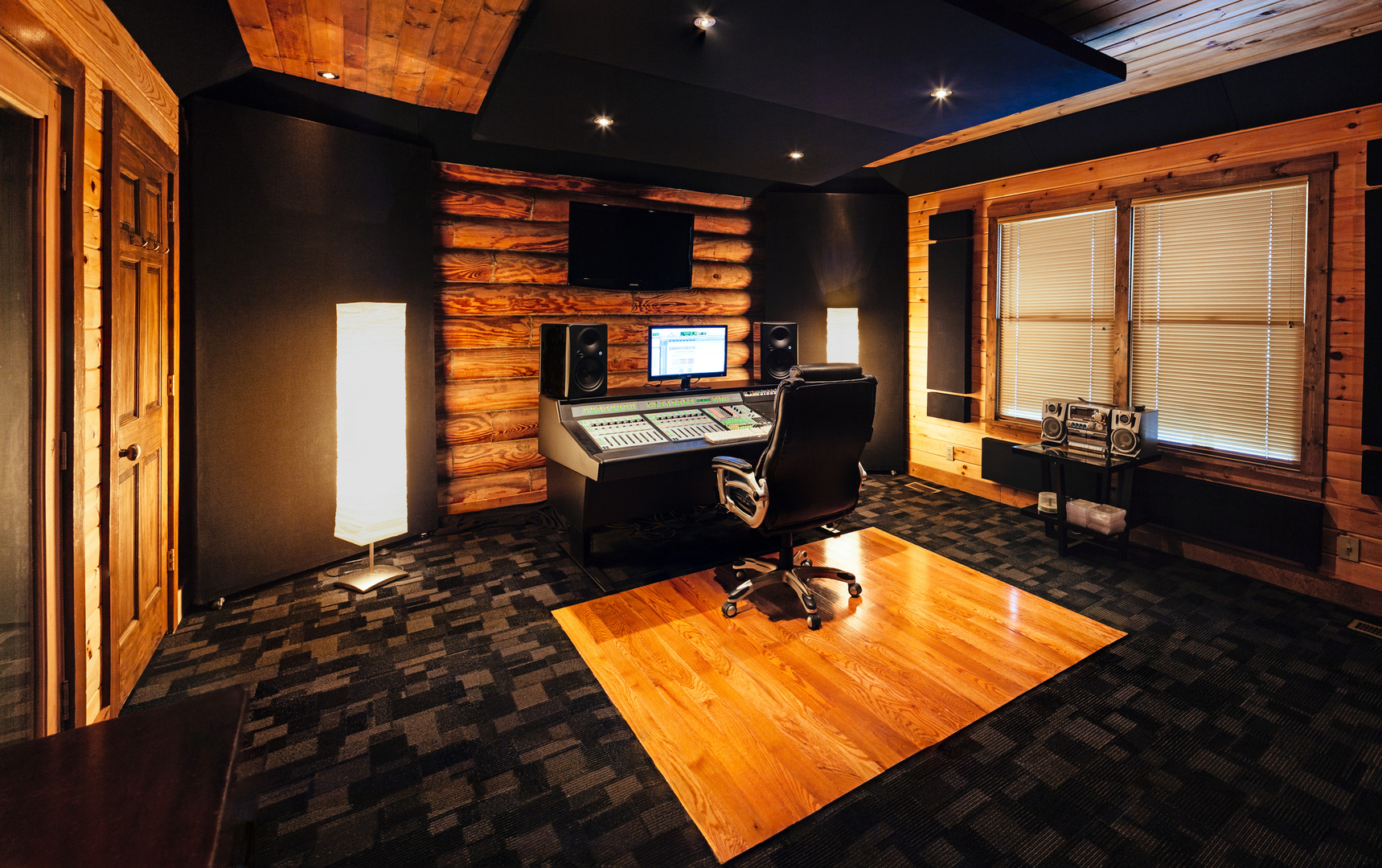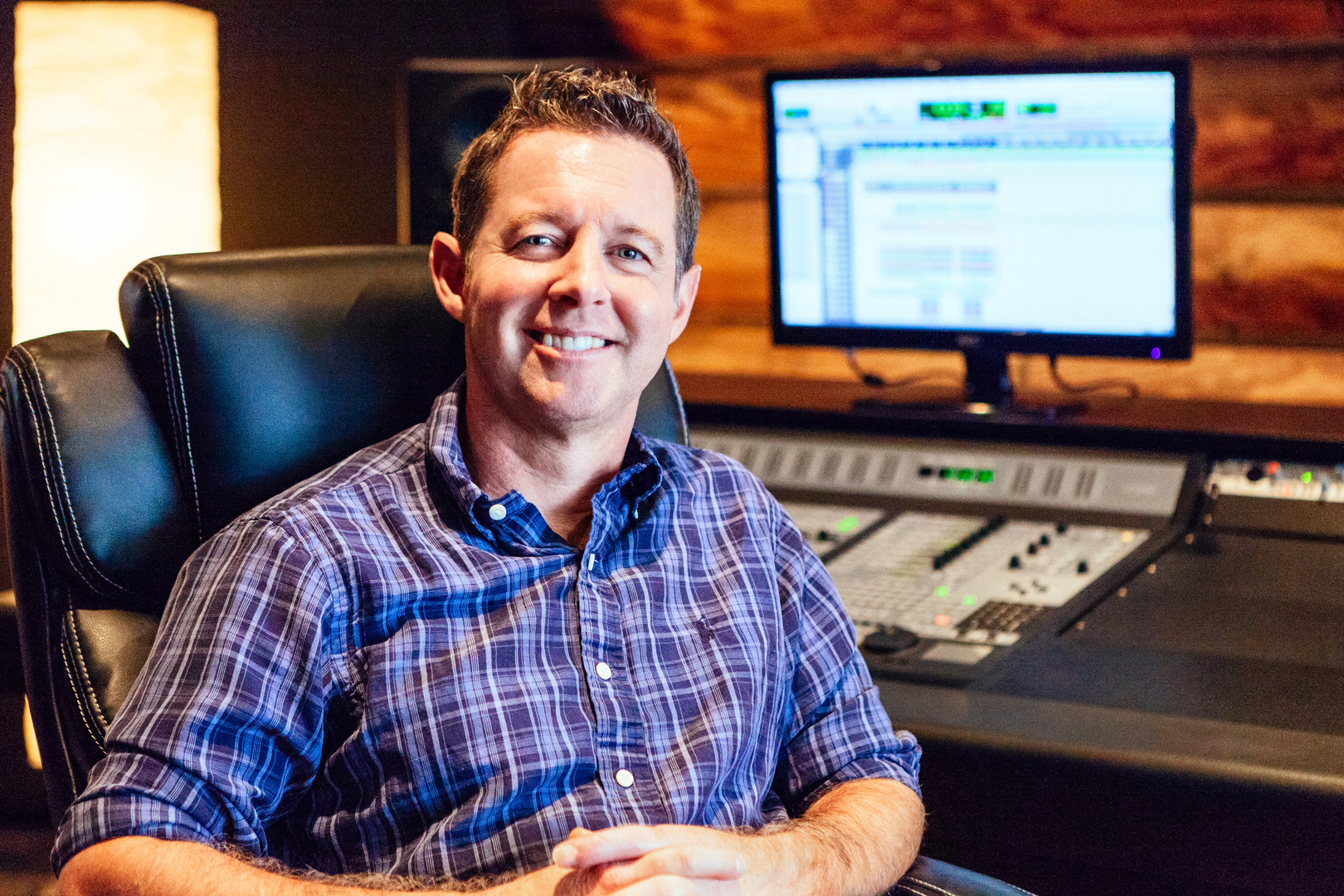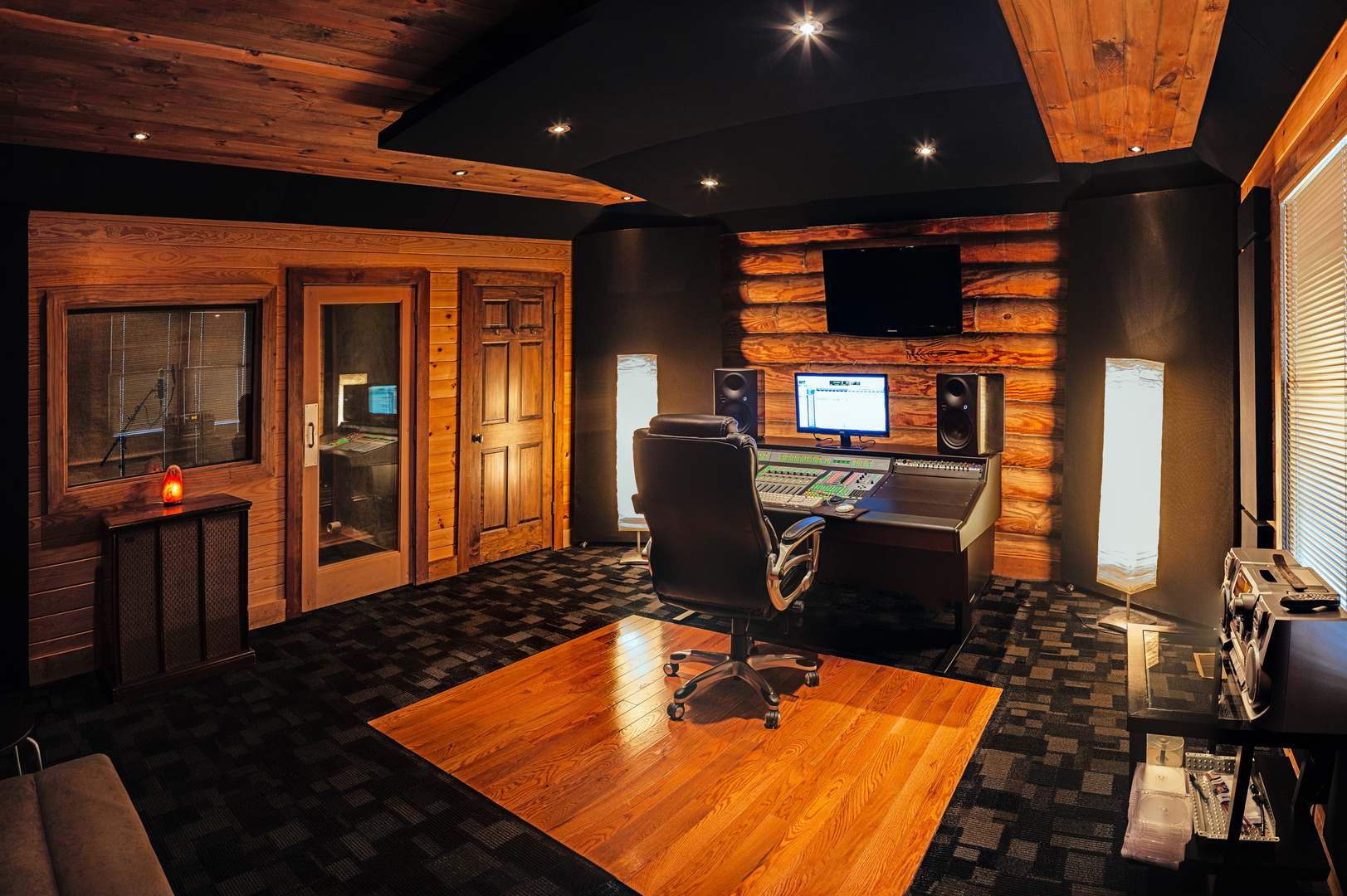
Billy Decker mixes music for a living. It’s something he does often and something he does incredibly well. With 14 songs that have went to #1 and over 30 million in record sales on music that he has worked on, it’s no wonder he’s in high demand.
I pull up to Billy’s studio in Nashville, Tennessee on a hot summers day. His studio, The Cabin at Westwood, lives up to its name. Feeling at one with the woods I am happy to see the woodwork continues on, inside of the studio, as well. Billy tells me he put his touch on the creation of this studio. “I designed all of this stuff. It was pretty much just a square room. That back wall was there but I did all the banding and the treatment here.” You can certainly tell he has a woodworking background.
Billy went with his specs and what he wanted to do with it. Billy then laughs when telling me, “I had no idea what I was doing, I pretty much just went with aesthetics. What looked cool.” He gets serious when he tells me, “there’s something about the audio with wood that just sounds great.” He continues, “I have a theory about keeping the studio cool in temperature. The speed of sound travels at a certain velocity. Colder air is more dense. So in theory, the sound should move through the denser air slower. Rather than if it’s warm, the molecules expand. The sound should go through it faster.”
He smiles and says, “I totally just made that up but I can tell you, I hear better in a cold environment. Because if it gets too hot I don’t think the sound is as good.” So in theory the sound slows down in a cold environment. Let’s see. Fourteen number ones? He might be onto something.
“The Deckerator”
With the speed of sound on my mind I ask him about his mixing techniques and his extremely fast turn around time when delivering his mixes back to the client. I mention that I’ve heard that he has a two hour rapid mix capability. Billy says, “two hours, that might be a stretch.” Relieved, I think in my mind it must be three or four hours. Billy then tells me, “I don’t think I’ve taken two hours in my lifetime. It’s more like between 45 minutes and one-hour.”

So two hours is long?? I was blown away by this.
Billy decides to show me what he is talking about. He pulls up a session and starts to set up his template. After a few minutes he has the stems in place and we listen to the raw data (tracks). Musically, they are terrific. Sonically, they are not.
After importing the session data into his template he methodically decides which tracks he will use and which tracks he will replace with samples. In some cases he uses the recorded tracks along with the samples and some he uses exclusively. All the while moving at light speed when placing, editing and EQ’ing the song. Only he does it, like the rest of us breathe. Sort of like second nature.
After about twenty minutes, he plays the song and it has really taken shape. In fact, it’s probably 90% of the way to being finished.
After watching his process, I find that 50% of what he does is his template, his ultra fast mouse control and mastery of Pro-Tools all working together in bringing this track to life. The other 50%? His ears. He is one of the few that mix the majority of the songs you hear on the radio and he knows exactly what that sounds like. This is why he is among those who are this successful. He tells me, “One of the reasons people call me is because I’m fast, efficient and it’s going to sound like a record.” A record that is on the radio. Pretty amazing stuff.
“That’s the Billy Decker Method”
Speaking of songs on the radio, it is my opinion that songs tend to get squeezed out when being played on the radio. Almost pushed down and squashed. I wondered if Billy mixes a song different when he knows it’s going to the radio. So is there a radio mix? “A good buddy of mine over at Georgetown Mastering, Andrew, has done a ton of records all over the place. About five or six years ago we tried to decode radio. I was working on a mix for a record company and we got permission to do a radio mix for a song that was going to be the single. So I’ve done this long enough to know that every time I send something to radio, it sounds different, so we’ve got to figure this out. So he mimicked orban limiters, which are what most radio stations across the country use. He did some research and mimicked those. I would mix at the studio, burn a CD and run it over to him. We would run it through that mimicked limiter and say Okay, that just killed the snare, so we need to put an obnoxious, butter knife in the forehead 2K to get that thing to crack. We realized that a lot of mixes are like a peanut butter and jelly sandwich. Take your sandwich and what happens when I push on it? Well if the peanut butter is the bass, it starts to come out of the side. So what happened is, we had to go bass shy about 3 or 4db for the radio.”
Billy, truly, has this thing down to a science.

Another side to Billy is his humble nature. He’s aware of his accomplishments, but I asked him if he ever hears something on the radio that someone else mixed and LOVES it. “I listen to the new Five Finger Death Punch that was mixed by Kevin Churko. I hear his stuff and I’m like. I’m done. I quit. I’m moving to Florida and I’m gonna dig palm tree holes for the rest of my life. (Billy laughs)
“If you stop. You’re dead.”
“But the other thing it does do, is motivates me to go in. So if I have a day off, a lot of times I’ll come in and practice. I’ll put on a record that made me go, man, I suck, and I think ok, what did he do?” I’ll put it under a frequency analyzer and see maybe that kick isn’t hitting at 60 and he put the bass either above or below. You can sort of see what he did there.”
I’m so amazed to hear this. I guess the learning never stops. Billy says, “If you stop. You’re dead.”
Good advice from a humble but extremely talented mixing engineer. One last wisdom I want to leave you with from Billy. “Drums with compression are beautiful. It’s the sound of rock radio. Drums without compression sound like ass. Horrible. Butt hole.” As I am cracking up laughing, Billy says, “and you can quote me on that.”
Here’s a look at some of the amazing artists Billy has mixed and worked with.
Rodney Atkins
Frankie Ballard
Billy Ray Cyrus
Colt Ford
Sam Hunt
The Lacs
Dustin Lynch
Bret Michaels
Parmalee
Cassadee Pope
Bubba Sparxxx
Chris Young
For more information on Billy visit:
http://www.billydecker.com
-Tommy Marz
Follow @Tommy and @SoundVapors on Twitter.